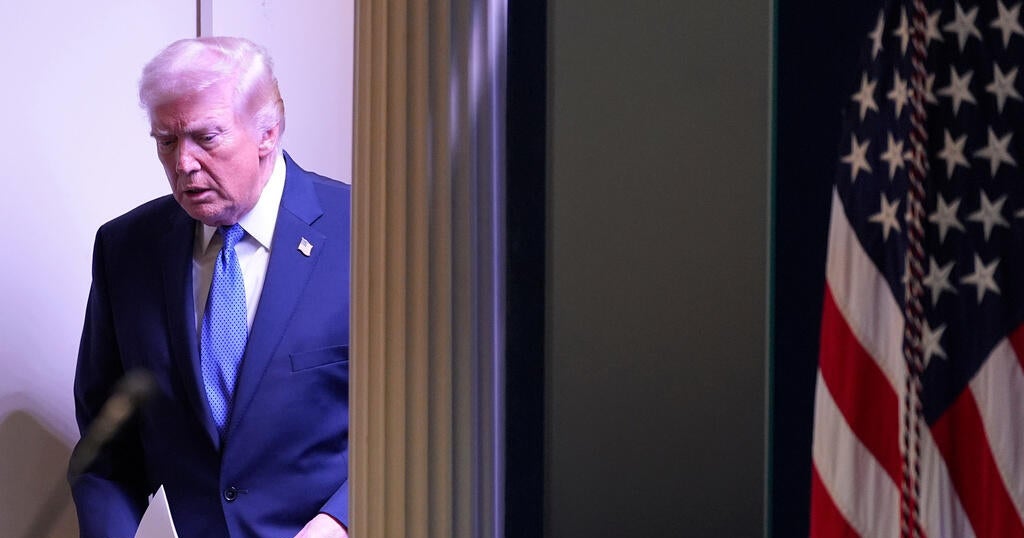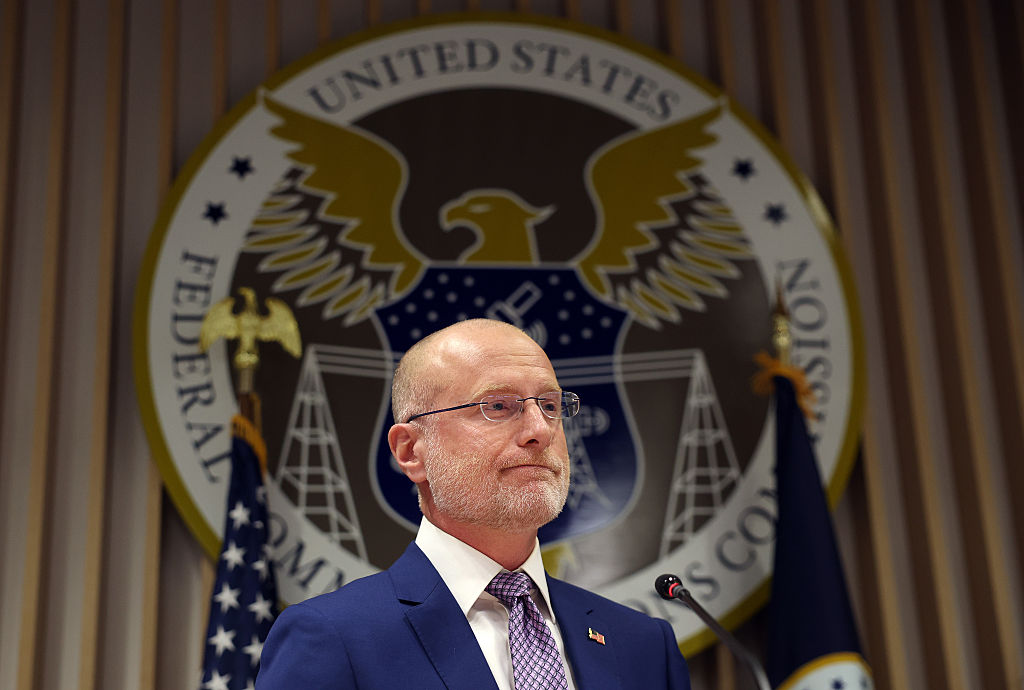Transcript: Scott Gottlieb discusses coronavirus on "Face the Nation," December 6, 2020
The following is a transcript of an interview with former FDA Commissioner Scott Gottlieb that aired December 6, 2020, on "Face the Nation."
MARGARET BRENNAN: And we're back with former FDA commissioner Dr. Scott Gottlieb, who also sits on the board of directors at Pfizer, one of the vaccine makers awaiting approval from the FDA here in the US. He joins us from Westport, Connecticut, this morning. So, Dr. Gottlieb, not only are infections spiking, so are deaths. The CDC director put the number at 450,000 people dead by February. That is double where we are right now. Do you agree with that forecast?
DOCTOR SCOTT GOTTLIEB: Well, look, I think we have a worsening situation around the country. Things are going to continue to get worse for the next four to six weeks. We're not likely to see a peak in the number of infections until about the end of December, maybe into January. And we're going to see a peak in a number of deaths and hospitalizations probably at some point in the middle of January. So as bad as things are right now, they're going to get a lot worse. I think, by the end of the year we will be at probably about 300,000 deaths. And by the end of January, we could be pushing 400,000 deaths. We're going to see consistently probably 2,000 deaths a day. And as we get into January towards the peak, we're going to see over 300,000- 3,000 deaths a day, unfortunately, and we'll maybe get close to 4,000 deaths a day. So, this is going to get a lot worse before it starts to resolve. Right now, the statistic is that about 1.7% of diagnosed cases will succumb to the infection within 22 days. That has held pretty steady. So, there's a grim future right now ahead of us for the next six weeks. People really need to protect themselves.
MARGARET BRENNAN: Understood. And we obviously urge everyone to protect themselves. Last week, we saw a- the largest surge in deaths in long term care facilities. This is the largest surge since June. This is the elderly. If someone watching at home has a loved one in one of those facilities right now, what do you recommend that they do?
DR. GOTTLIEB: Look, I think that you need to protect the elderly in these facilities by probably not visiting right now, not having people go into those facilities and the facilities themselves really need to be vigilant about their staff, testing their staff and making sure the staff don't walk the infection into those facilities, because in many cases, that's how it's getting into these- these institutions. People are bringing it in either visitors or- or staff. Right now, visitors aren't allowed in most of these facilities. Hopefully, we'll be able to vaccinate these individuals and the staff very soon. The vaccines are going to be prioritized to these staffs and- and hopefully the vaccines will be available soon and moved into these facilities. And one dose can be partially protective, especially in younger individuals. So the vaccines could start to have an impact right away.
MARGARET BRENNAN: Well, it's interesting you say that because I asked Dr. Slaoui about that idea of whether to vaccinate 40 million people out of the gate since they have 40 million doses versus the more conservative plan of going with 20 so that they have two doses set to go, keeping one in reserve. Dr. Slaoui said it was, you know, to be careful in case of manufacturing issues. Do you think that was the right call?
DR. GOTTLIEB: Look, I would be trying to push out as much vaccine as possible, recognizing that the supply ramps very quickly in 2021, and you have to take a little bit of a risk that the supply is going to be there in 2021 to give everyone who gets vaccinated in 2020 the second dose. This is a crisis. We need to get as many vaccines in arms as possible in my view. And that means pushing out all the available supply or most of it. You might want to hold a little bit in reserve, but not much. The supply does ramp. The first dose is partially protective, probably, the data does suggest that. So, I think we want to spread as much vaccine as possible. If we have- if we can't get the people who get their first dose their second dose in 2021, we're going to have bigger problems than just the fact that those- those people didn't get the second dose of vaccination. So, we need to take a little bit of risk here.
MARGARET BRENNAN: To your point, scientists at the University of Washington estimate vaccines will save 9,000 U.S. lives before April, but they say 14,000 more could be saved if there was a rapid scallop- scale up of vaccines among high-risk individuals. What does a more aggressive push look like?
DR. GOTTLIEB: Well, we are where we are with the supply, so the supply will ramp as we get into 2021, but there's no way we're going to be able to accelerate that between now and, say, March. I think if you want to maximize preservation of life, you would vaccinate older Americans. You would prioritize vaccinating older Americans and Americans with comorbid conditions that if they do get COVID, they're more likely to have a bad outcome, more likely to die from COVID. Those decisions are going to be made very soon about who that second tranche of people to be vaccinated is. I'm talking to a number of governors and I think governors are going to prioritize their older populations and in some targeted populations in their states where certain communities have been hit especially hard by COVID, they'll go in and make some targeted decisions.
MARGARET BRENNAN: You sit on the board of Pfizer. As we said, Pfizer said they're not going to hit their 2020 manufacturing target. Does that mean an actual shortage of vaccine?
DR. GOTTLIEB: No, what happened was the manufacturing got delayed. There was some supply chain issues, but the vaccine that they intended to produce in 2020 now gets pushed into 2021. This is a supply chain that ramps very quickly as you- as time progresses. So every time you- a week gets pushed from 2020 into 2021, you- you lose a lot of supply in 2020 and that supply gets pushed into the next year. So, the supply stays the same. It's just not going to be available this year. But those doses, the doses that have been promised right now have been made. So, Pfizer has said that they'll have 50 million doses available globally in 2020. Those doses, by and large, have been made. And in the UK, right after the authorization, trucks rolled into the United Kingdom through the Chunnel and actually delivered those doses. They're now sitting in the United Kingdom ready to go, and they're going to start vaccinating probably on Tuesday. And UK authorities have said they may be able to vaccinate 8,000- 800,000 people in the first week.
MARGARET BRENNAN: But the idea that a US based company will start vacc- vaccinating in another country before the United States caused some consternation this week and some finger pointing at your old agency, that they were slow rolling approval. Would you run this process differently?
DR. GOTTLIEB: Well, look, FDA made some deliberate decisions, I think, for sound reasons that delayed this by not months, but probably weeks. They- they committed to have an open advisory committee. That was to inspire public confidence and provide transparency around the approval process and the clinical data. That probably added a week or two to this process. They also required that manufacturers have at least two months of safety data on 50% of the patients before they even file their applications. So, that delayed the ability to file an application till the end of November. So, some of those applications perhaps could have been filed in early November based on the interim analysis, the first tranche of data showing that these vaccines were more than 90% effective. But the manufacturers had to wait a couple of weeks to file that because of that requirement. There's sound reasons why the FDA did that. They wanted to provide a greater degree of public assurance, and also get a better look at the data. But it did delay this by a couple of weeks at least. So we just have to accept that.
MARGARET BRENNAN: So in other words, yes, you would have done a few things differently, but we will be standing by for this. Dr. Gottlieb, thank you as always, for your analysis. We'll be right back.



